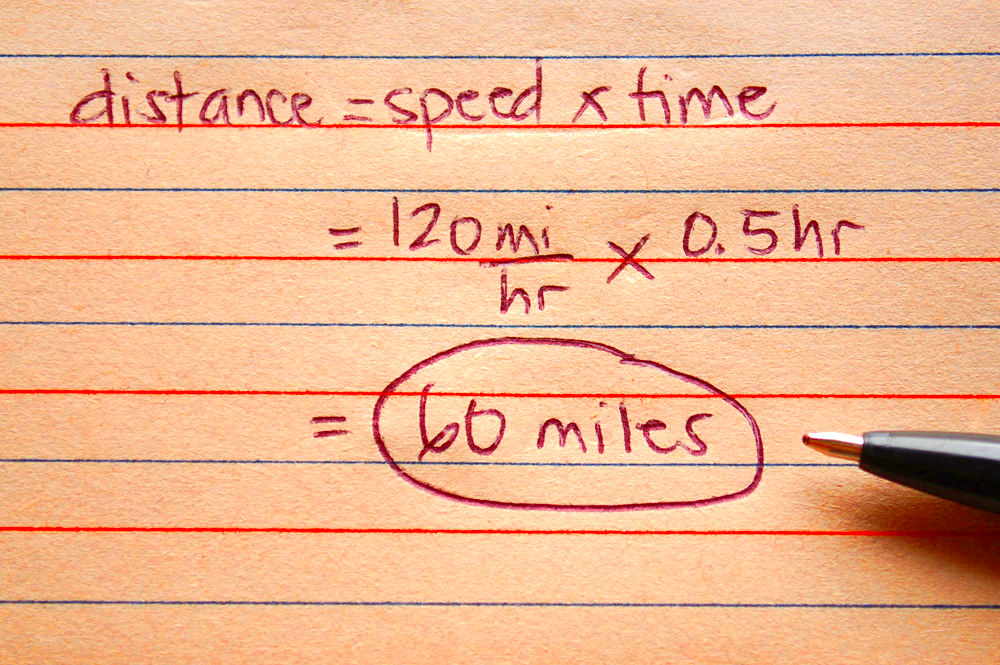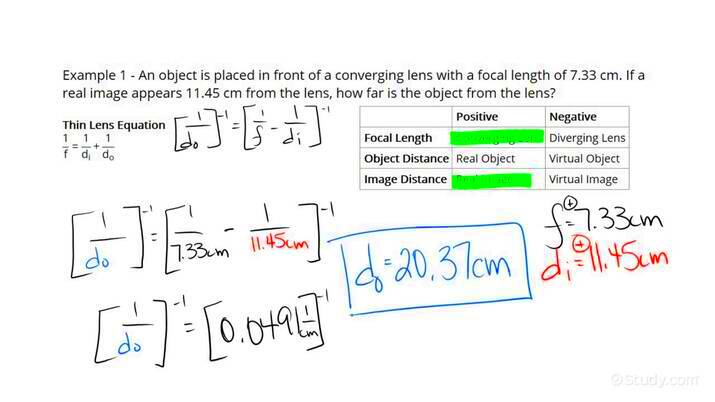Image distance refers to the space between the lens and the subject in a photograph. This distance significantly impacts how the subject appears in the frame. When photographers talk about image distance, they’re often discussing the effects it has on focus, perspective, and depth of field.
In simple terms, the closer you are to your subject, the more detail you can capture. On the other hand, moving further away can include more background elements. Understanding this concept is essential for creating engaging and visually pleasing images. Photographers use image distance to manipulate how viewers perceive their subjects.
Importance of Accurate Composition

Accurate composition is crucial in photography as it guides how a viewer's eye moves through an image. Here are some reasons why getting composition right matters:
- Focus: Proper composition helps highlight the subject, ensuring it stands out.
- Balance: Well-composed images feel stable and harmonious, creating a pleasant viewing experience.
- Storytelling: Composition can convey emotions and messages, adding depth to your photographs.
- Engagement: A strong composition keeps viewers interested and encourages them to look closer.
By mastering composition, you enhance your photography skills and create images that leave a lasting impression.
Also Read This: how to embed linked images in illustrator
Factors Influencing Image Distance
Several factors can influence the image distance in photography. Understanding these factors can help you make better decisions while shooting. Here are the key elements:
| Factor | Description |
|---|---|
| Lens Type | The type of lens affects how distance is perceived in an image. Wide-angle lenses capture more of the scene, while telephoto lenses compress distance. |
| Subject Size | Larger subjects may need to be shot from a greater distance to fit within the frame, impacting the image distance. |
| Background Elements | The inclusion of background details can affect the desired distance. Photographers often adjust their position based on what they want to emphasize. |
| Camera Settings | Aperture, shutter speed, and ISO settings can influence how image distance is perceived, especially in low light conditions. |
By considering these factors, you can better control the image distance and create stunning photographs that effectively convey your artistic vision.
Also Read This: Adobe Stock How Do I Get Images With Watermark Removed
How to Measure Image Distance
Measuring image distance accurately is essential for achieving the best results in photography. Whether you're using a simple point-and-shoot camera or a professional DSLR, knowing how to gauge this distance can make a big difference in your shots. There are several methods you can use to measure image distance, and understanding these techniques will help you capture the perfect shot every time.
Here are a few common methods:
- Using a Tape Measure: The simplest way to measure distance is by using a tape measure. This is especially helpful for still-life photography or when working with static subjects.
- Lens Markings: Many camera lenses have distance markings that show the focus distance. By setting your lens to the desired distance, you can ensure accurate focus.
- Using the Depth of Field Calculator: Online calculators can help you determine the appropriate distance based on your aperture, focal length, and sensor size.
- Smartphone Apps: There are various apps designed for photographers that can help measure distances accurately. These apps often use augmented reality to provide real-time measurements.
By choosing the right method for measuring image distance, you can enhance your photographic compositions and achieve stunning results.
Also Read This: Exclusive vs. Non-Exclusive Contributor on Getty Images: Pros and Cons
Common Mistakes in Image Distance Calculation
Even experienced photographers can make mistakes when calculating image distance. Being aware of these common errors can help you avoid them and improve your photography. Here are some frequent pitfalls:
- Ignoring Focal Length: Forgetting to account for the lens focal length can lead to incorrect distance estimates and blurred images.
- Not Considering Subject Size: Underestimating the size of your subject can result in images that are too close or too far away.
- Relying Solely on Autofocus: While autofocus is helpful, it can sometimes miss the mark, especially in tricky lighting situations. Always double-check your focus manually.
- Overlooking Background Elements: Focusing only on the subject without considering the background can lead to unwanted distractions or an unbalanced composition.
By recognizing these mistakes, you can make conscious efforts to improve your photography and achieve more polished results.
Also Read This: How to Sell Your Creative Work on Behance
Tips for Improving Image Composition
Improving your image composition can elevate your photography to new heights. Here are some practical tips to help you create more engaging and visually appealing photos:
- Rule of Thirds: Imagine your frame is divided into thirds both horizontally and vertically. Place your subject along these lines or at their intersections for a balanced composition.
- Leading Lines: Use natural lines in the scene, like roads or rivers, to lead the viewer's eye towards the subject, creating a sense of depth.
- Framing: Use elements in your environment to frame your subject. This adds context and draws attention to the focal point.
- Experiment with Angles: Don’t be afraid to try different angles and perspectives. Shooting from high or low can offer unique viewpoints that enhance your composition.
- Practice Minimalism: Sometimes, less is more. Removing clutter from your frame can help focus attention on the subject.
By applying these tips, you can improve your image composition and create photos that stand out, engaging your audience and telling compelling stories.
Also Read This: The Easiest Way to Post Youtube Video on Instagram With This Simple Tool
Using Software for Distance Calculation
In the digital age, software tools have become invaluable for photographers looking to calculate image distance accurately. Whether you're a professional or an enthusiast, these tools can streamline your workflow and help you achieve stunning results. From mobile apps to desktop software, various options cater to different needs and preferences.
Here are some popular software options you might consider:
- Depth of Field Calculators: These online tools help you determine the depth of field based on your camera settings. You input your focal length, aperture, and distance to the subject, and the software calculates the depth of field for you.
- Camera Apps: Many camera apps, such as DSLR Camera or Manual Camera, offer distance measurement features. These apps provide advanced settings and often allow you to visualize your distance and focus settings before you shoot.
- Photography Software: Programs like Adobe Lightroom and Photoshop can assist in post-processing images. They help analyze your compositions and adjust for optimal focus and distance during editing.
- Augmented Reality Apps: Some apps use AR technology to measure distances in real-time. You can point your device at the subject, and the app provides instant distance readings, making it easy to set your shot up correctly.
By incorporating these software tools into your photography routine, you can ensure accurate distance calculations and enhance your overall image quality.
Also Read This: How to Uninstall Raw Image Extensions
FAQ
As you delve into the world of photography and image distance, you might have some questions. Here are answers to some common inquiries:
- What is the best way to measure image distance?
Using a combination of a tape measure and your camera’s lens markings can yield accurate results. Additionally, software tools can help streamline the process. - How does image distance affect my photos?
Image distance impacts focus, depth of field, and perspective. Understanding it helps create better compositions and highlights your subject effectively. - Can I use my smartphone to measure distance?
Yes! Many apps available for smartphones can help you measure distances accurately using augmented reality features. - What are common mistakes to avoid?
Ignoring focal length, not considering subject size, and over-relying on autofocus are common pitfalls. Being mindful of these can improve your results.
Conclusion
Understanding and calculating image distance is crucial for any photographer aiming to improve their craft. By utilizing various measurement techniques, recognizing common mistakes, and employing software tools, you can significantly enhance your photography skills. Remember that composition plays a vital role in how your images are perceived, so practicing different techniques can lead to better results.
Whether you're capturing stunning landscapes, portraits, or macro shots, a solid grasp of image distance will allow you to create images that truly resonate with your audience. Keep experimenting, learning, and growing as a photographer, and your efforts will pay off in the quality of your work.

 admin
admin








